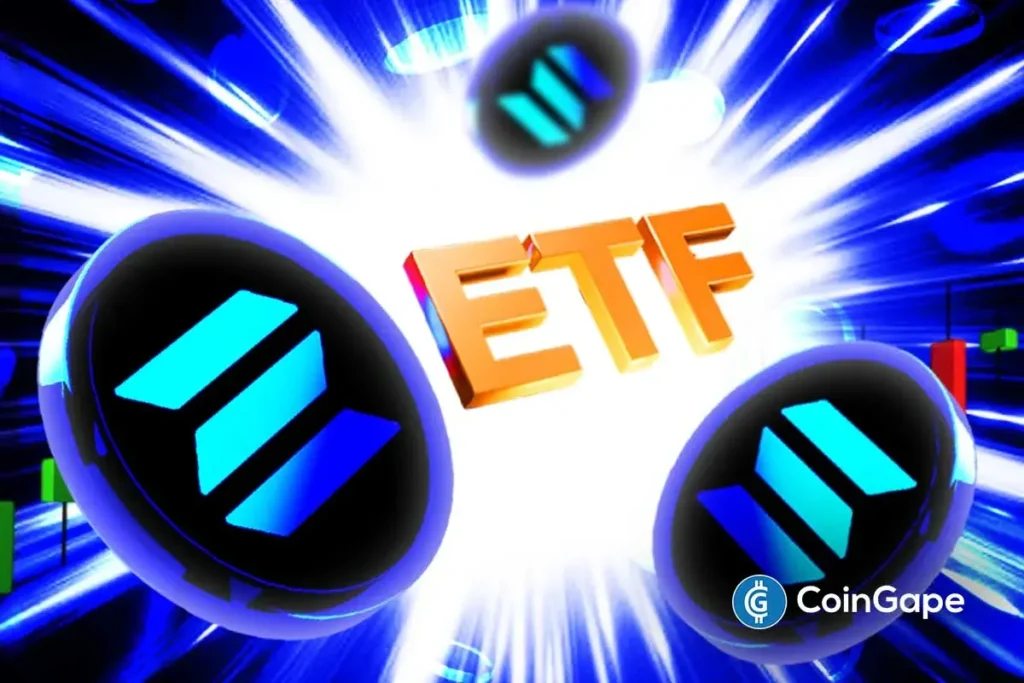Title: VanEck Files Fifth Amendment for Spot Solana ETF: What You Need to Know
In a noteworthy development within the cryptocurrency investment landscape, VanEck has officially submitted its fifth amendment for the Spot Solana ETF (VSOL) to the U.S. Securities and Exchange Commission (SEC). This filing features important details, including a manageable 0.30% management fee and a comprehensive staking policy, setting the stage for a unique investment vehicle that aims to capitalize on the growth of Solana (SOL).
The VSOL ETF not only intends to track the price of SOL but also seeks to generate additional returns through an innovative staking mechanism. This hybrid model represents a pioneering approach for digital asset funds in the United States, potentially opening doors for investors seeking exposure to the dynamic world of cryptocurrencies while enjoying regulated yield opportunities. By integrating both price tracking and staking, VanEck aims to create a fund that is both competitive and compliant, ensuring it adheres to regulatory standards while maximizing investor benefits.
To manage its staking operations, VanEck plans to partner with reputable third-party staking providers like SOL Strategies for Solana delegation and yield generation. This partnership underscores the importance of selecting providers based on their performance criteria, including uptime and regulatory compliance, ensuring a robust staking process. Alongside this approach, VanEck has also filed for a staked Hyperliquid ETF in the U.S., with expectations of its HYPE listing on Coinbase. Such initiatives signify VanEck’s commitment to expanding its portfolio of staking-integrated fund products.
An innovative aspect of VanEck’s staking model is its liquidity risk policy. This strategic feature allows for redemptions even amid market volatility. With a proactive buffer of 5%, the ETF aims to mitigate any barriers to investor liquidity, ensuring that funds are readily available for redemption without delay. This is particularly crucial in the context of Solana, where traditional unbonding processes can take anywhere from two to three days. By prioritizing liquidity, VanEck positions the VSOL ETF as a responsive investment option in a fast-paced market.
In terms of security and fund management, Gemini Trust Company and Coinbase will act as custodians for the ETF, ensuring that Solana holdings are stored in an insured and regulated manner. This partnership not only enhances the fund’s credibility but also aligns with VanEck’s broader strategy to consider liquid staking tokens (LSTs) in the future, contingent upon regulatory approval. Recently, the firm established a Lido Staked Ethereum Trust in Delaware, further emphasizing its strategic move toward integrating staking within its fund offerings, paving the way for innovative, tokenized yield instruments in an SEC-compliant framework.
While the launch of the Solana ETF appears promising, regulatory uncertainty looms large, particularly amid the ongoing U.S. government shutdown. According to ETF analyst James Seyffart from Bloomberg, despite the thorough submission, no definitive deadline exists for the SEC to approve or reject the application. The absence of regulatory clarity means that the approval process for Solana ETFs is likely stalled until normal government operations resume. Under the generic listing standards (GLS), exchanges like Cboe BZX can still list crypto-based ETFs without SEC approval, provided they meet existing listing and disclosure requirements. However, the shutdown hampers the ability of staff to provide clarifications or procedural updates, leaving the fate of these innovative ETFs in limbo.
In conclusion, VanEck’s submission for the Spot Solana ETF signals an exciting evolution in cryptocurrency investment options, particularly through its unique combination of price tracking and regulated staking. As the firm navigates the complexities of regulatory frameworks amid external uncertainties, the VSOL ETF exemplifies a strategic effort to offer investors a versatile and compliant avenue for engaging with digital assets. Whether the ETF will clear regulatory hurdles remains to be seen, but its introduction certainly marks a significant step forward in the quest for meaningful cryptocurrency investment vehicles.


